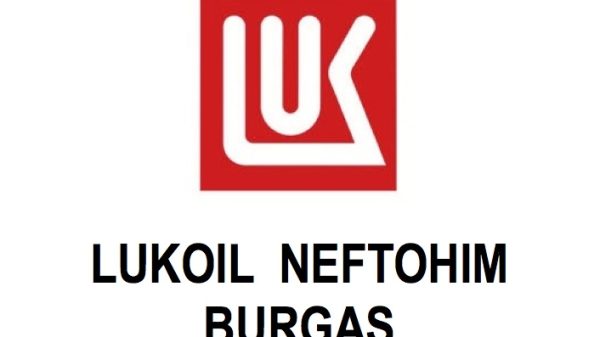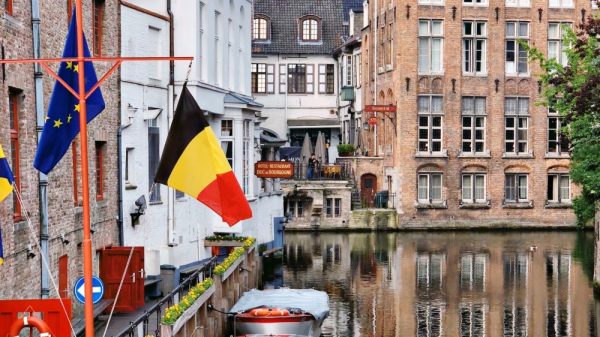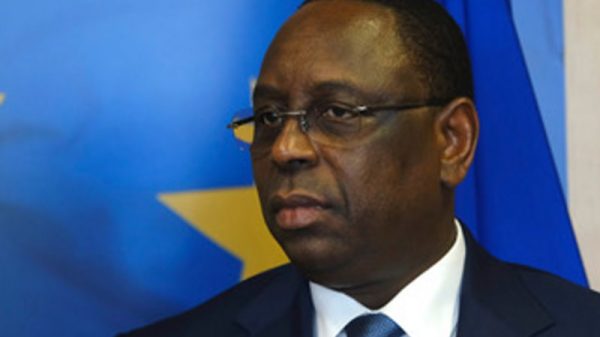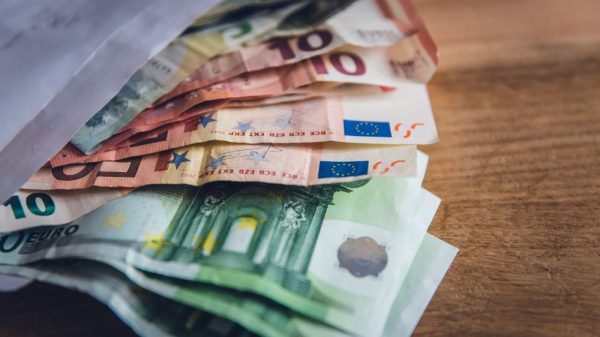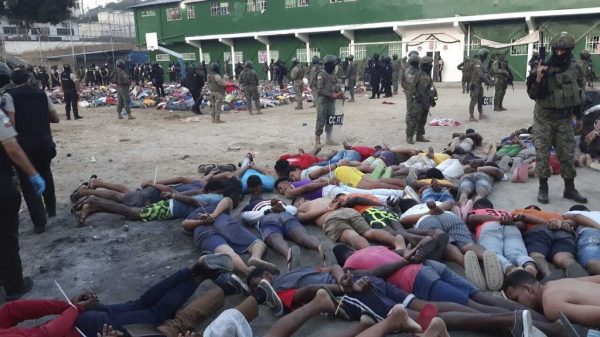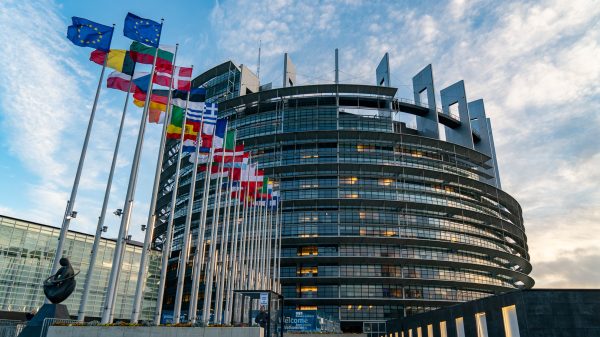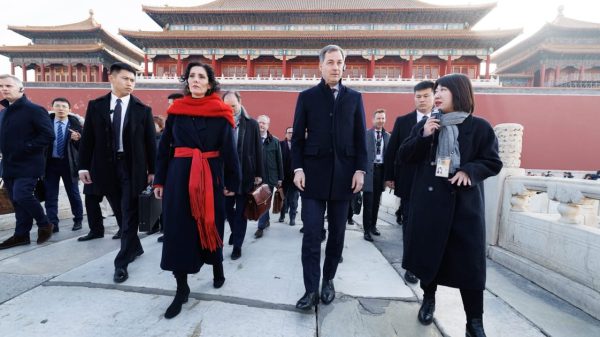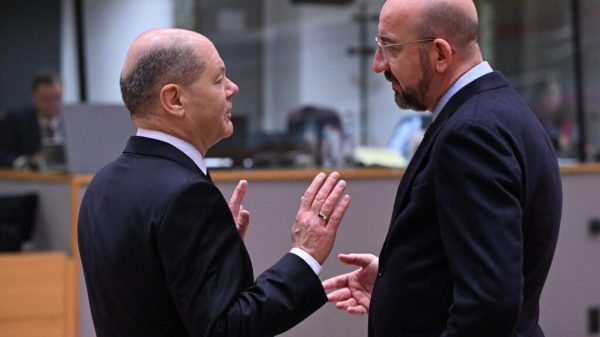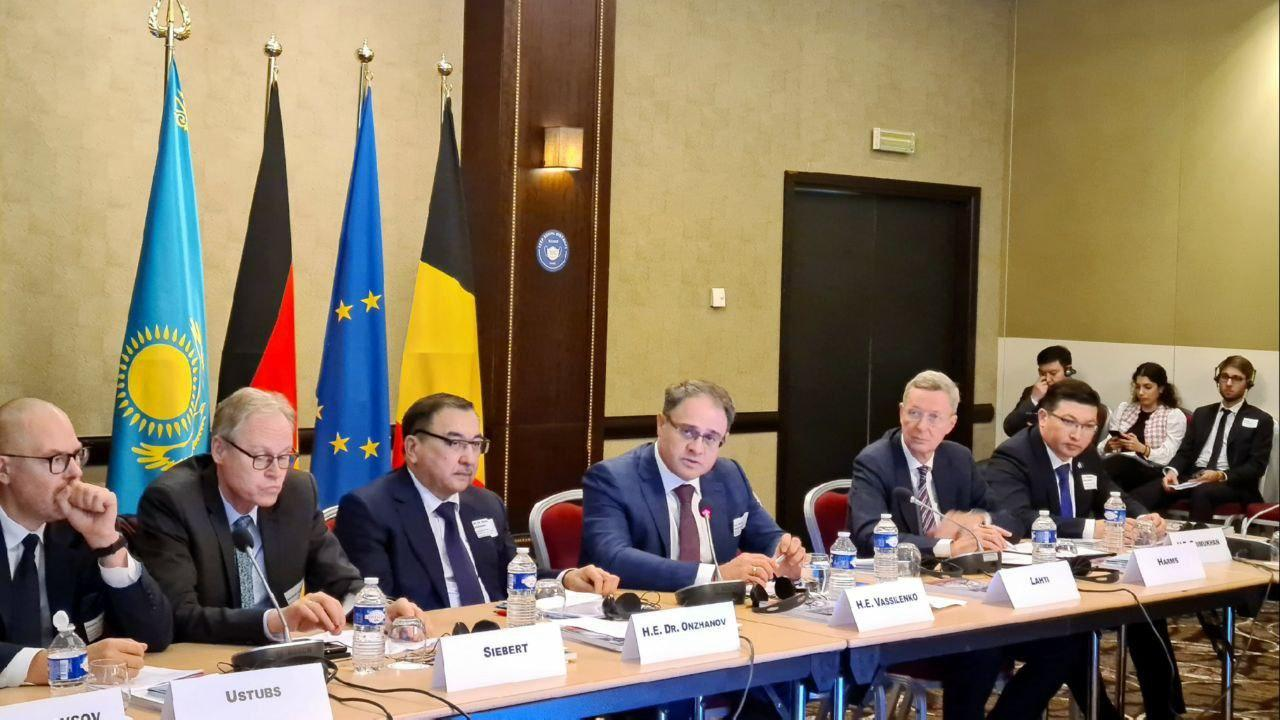‘When are you going ease our travel situation to Europe?’ has become the “first and last question” that Kazakh citizens ask their foreign ministry. That insight was shared by Kazakhstan’s Deputy Foreign Minister, Roman Vassilenko, at a meeting in Brussels of the Berlin Eurasian Club, writes Political Editor Nick Powell.
German commerce came to Brussels to explore how both businesses and people could further benefit from the Enhanced Partnership and Cooperation Agreement between the EU and Kazakhstan, which has been fully in force since 2020. Luc Devigne, from the European External Action Service, observed that Kazakhstan “stands out in Central Asia, the EU does not, perhaps yet, have the same depth of relations within other countries in the region”.
Deputy Foreign Minister Vassilenko spoke of the impressive growth in business links between his country and the European Union. More than 3,000 EU companies now operate in Kazakhstan and trade was expected to double by 2025, in part because of the importance of an uninterrupted and safe supply chain of critical raw materials essential for the green transformation.
AdvertisementEnergy remained a huge area of bilateral cooperation, with Kazakhstan providing 8% of the EU’s oil and 23% of its uranium. But the minister also stressed that the EU had “a truly strong soft power attraction to the people of Kazakhstan”, who want to travel to Europe more easily. Kazakhstan offers visa-free travel to EU citizens and a formal consultation on visa facilitation for Kazakhs visiting the EU is now underway. That’s highly appreciated, as it’s important to strengthen not just state-to-state but people-to-people connections.
Raül Hernández Sagrera, from the Home Affairs Commissioner’s cabinet, said the work on visa facilitation is focused on short stays by Kazakhs visiting the EU, as long stays are the competence of national governments. He said the European Commission is looking at issuing multiple entry visitors for frequent travellers, such as businesspeople.
Ambassador Terhi Hakala, the EU Special Representative for Central Asia, said the development of the Middle Corridor trade route, linking Asia and Europe via Kazakhstan, the Caspian Sea, Azerbaijan, Georgia and Türkiye, was not just economically important. It would be a corridor for people to make contact, creating academic as well as business links.
She noted that a meeting of EU and Central Asian foreign ministers, followed by a meeting of the EU-Kazakhstan Cooperation Council, was just days away. This would not just a photo-opportunity but an opportunity for cooperation at the highest political level, the Ambassador stressed. She spoke of the importance of strengthened cooperation, within Central Asia, along the TransCaspian route and with other countries with an interest in trade between Asia and Europe, such as India and the Gulf states.
Ambassador Hakala said China and the EU had to keep checking the quarterly economic figures, to see which of them is Central Asia’s biggest trade partner. She had also been speaking to likeminded global partners ahead of the meeting; the UK, USA and Japan “all want to get involved”.
Luc Devigne, from the EEAS, referred to the impressive development of the Middle Corridor. Bottlenecks had been identified and the EU would invest in 33 hard infrastructure improvements but he also spoke about the drive for “common sense cooperation”, getting rid of bureaucratic obstacles along the route. Roman Vassilenko said the TransCaspian route had been identified as the most sustainable way of moving goods between Central Asia and Europe. In the first nine months of 2023, traffic was up by 88%.
André Fritsche, from the German Chamber of Commerce and Industry, looked forward to Kazakhstan becoming an even more important economic hub, not just in energy but in Green Economy opportunities. One German businessman, Dr Joachim Lang, said imports needed to be seen as making a positive contribution to the EU’s climate footprint. German companies are now insisting that, for example, green electricity has been used in manufacturing. Customers were willing to pay a higher price for such products.
Luc Devigne said that the green and digital agendas are overarching the entire programme of President von der Leyen. He also stated that the European Union supports the ambitious reform agenda of President Tokayev of Kazakhstan. Good governance and the rule of law are essential to trade relations.
Deputy Foreign Minister Vassilenko said the Kazakh government is encouraged and pleased by the strong EU political support for further cooperation. The dynamics and messages are very positive, and the business community should be assured of of continued support from “the top leadership down” in Kazakhstan.
He emphasised the importance of removing non-tariff trade barriers, which are faced by the premium organic products that his country could supply to Europe. The minister added that while not itself joining in sanctions against Russia, Kazakhstan is firm in avoiding its territory being used to evade sanctions imposed by the European Union and others. Trust is the key word and he could not comment publicly on the measures being taken.
Kazakhstan is a member of the Eurasian Economic Union and has 51 border crossings with Russia. Ambassador Hakala said there is good cooperation with Kazakhstan on sanctions and European exporters had a role to play as well. Peter Tils, of the Berlin Eurasian Club, said Kazakhstan is suffering because some firms are avoiding the problem by halting exports to the country.
There are so many issues to address, concluded Roman Vassilenko, “we just need to keep on working together”.





